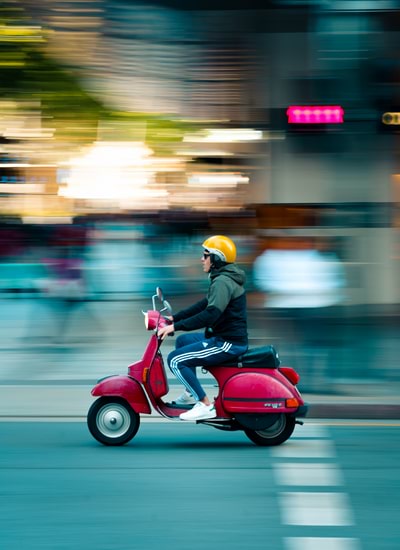Motorized scooters, mopeds or “DUI scooters” as they are commonly known, were historically a popular alternative throughout the country for those convicted of a DUI or OWI and had subsequently lost their driver’s licenses. While their use by those convicted of DUI is considerably more restricted today than they were previously, they are still useful for individuals in certain states and areas that do not restrict their usage.
These vehicles are usually gasoline or electric powered, and while regulations vary state to state, they are generally limited to 2-3 horsepower and a displacement of 50cc if they are gas engines. They also are limited in speed to between 20 and 30 miles per hour, again depending on the particular states regulations. Despite these speed and displacement restrictions, motorized scooters provide useful transportation to many individuals who otherwise would otherwise be legally unable to have their transportation needs met.
The information provided is not intended to act as a substitute for professional legal advice. If you have questions as to the legal ability to use a moped or motorized scooter after receiving a DUI, it is strongly recommended to speak with an attorney specializing in drunk driving. This will ensure that you are on the right side of the law and help to prevent any further legal issues after a DUI conviction.
Are Motorized Scooters a Good Choice?

However, in recent years most states have tightened their moped restrictions to prohibit the use of mopeds by those who have lost their normal driver’s license as a result of a DUI. This is largely due to the increased usage of motorized scooters by those who have drunk driving convictions and the corresponding increase in moped accidents and fatalities.
Because of these increased restrictions on the legal use of mopeds and motorized scooters by DUI offenders, they are no longer the best choice for transportation for those who have lost their license from drunk driving. In addition to this, a person can still get a DUI on a motorized scooter. If someone is using a scooter as an alternative form of transportation while still suffering from alcohol addiction or abuse, they will only make their situation worse and create an even larger legal burden for themselves.
Alternative Solutions
Luckily, there are alternative options for an individual who is facing license suspension or revocation as a result of drunk driving. Not every drunk driving case needs to result in the loss of a person’s license, as there are legal defenses that can help to prevent a conviction and allow a person to retain their legal ability to operate a motor vehicle. Some of these defenses include things such as faulty BAC measuring devices, improper actions by law enforcement, questionable lab results and other things such as legal errors in documentation and the improper or illegal use of warrants.
In addition to this, most states offer a method or path for license restoration, which can allow an individual to regain their driving privileges. This is a graduated process that will vary state to state, and is generally rigid with little room for error on the part of the offender. However, it is ultimately the best option for those who have already lost their license and are ready to regain control over their transportation needs.




